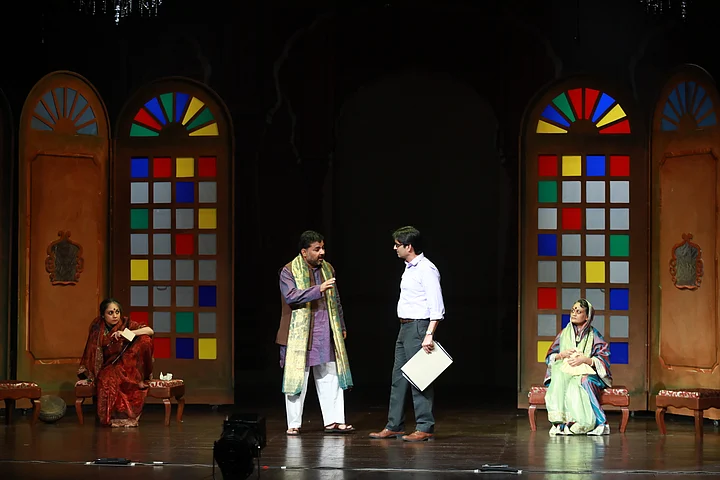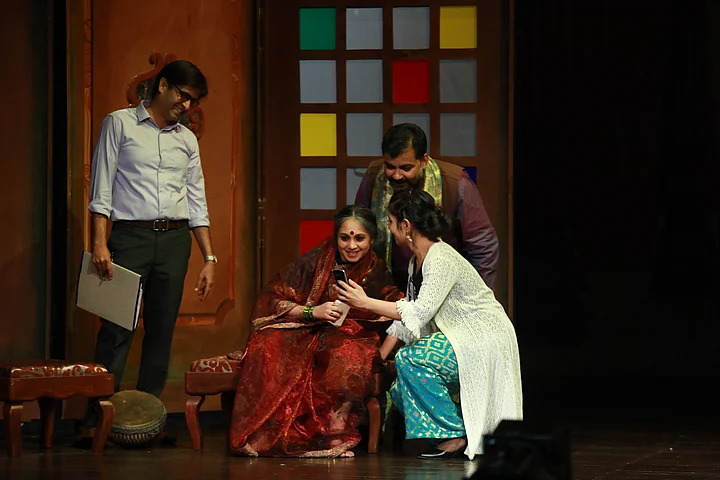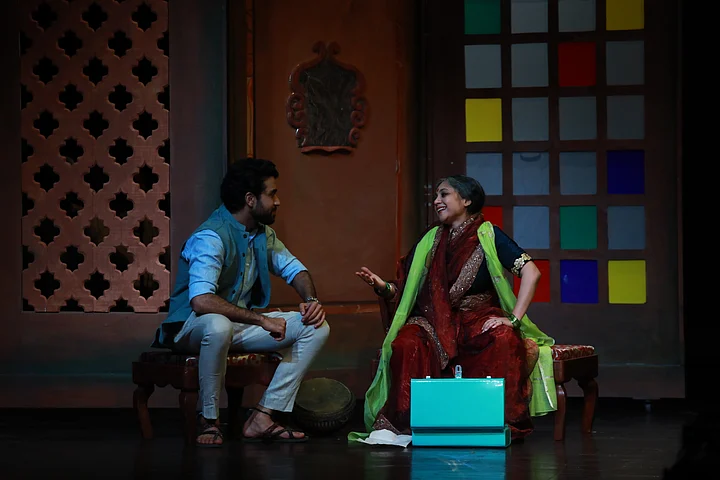The sonority of ghunghroos, a twitch of crimson stained lips, a voice that dives deep into the heart – a woman that brings zest to the congregation by touching it with the livewire of her singing.
That woman could either be a Baithak singer, a tawaif, a nautanki singer, or a playback singer who refuses to perform unless she gets an exclusive makeup van. Purva Naresh’s latest play Bandish 20-20000 hz charts the journey of the female singer in India from the pre-Independence era to the present day.
In a riveting narrative that seamlessly moves back and forth in time, Naresh’s play delves into the lives and times of the singing women of north India. Through the characters of Beni Bai, the graceful Baithak singer, and Champa Bai, the ebullient nautanki singer, the audience is brought into the folds of a lesser known history of Hindustani classical music – a history that is deeply personal and fills the gaps in a heavily masculine discourse on music.
In this story the two meanings of word bandish, “a fixed, melodic composition in Hindustani music” and “restriction,” become intertwined.
The Plot
The stage is set for grand celebrations marking 70 years of India’s independence. Two yesteryears singers have been invited to be felicitated on this occasion, who are nothing less than vintage gramophones compared to the two youth icons who are supposed to perform the same evening.
Kabir is not sure if he should sing.
Champa Bai wants to but is not allowed to sing.
Beni Bai is requested to sing but won’t.
Moushumi wants to sing but can’t, unless...
The engagement of these four singers unravels a musical tale of artistic freedom, genre hierarchies, art and the market, art and social responsibility, and above all, the changing ethos of the world of artistes.
And then there is Munnu. An integral part of every baai’s life.
With his undivided attention towards food, Munnu – the Man Friday – brings in the idea of art’s survival in a world that seems to care lesser and lesser for it. Munnu is the voice in every struggling artiste’s head.
The Notes of History
As the two veteran singers reminisce about their glorious past, the audience is served unusual nuggets of the country’s history. How the baithak singers donated their riches to the freedom fighters; how the nautanki singers defied the colonial masters; how these singing women navigated through romances with their patrons; how politics of the day impacted their daily lives; how women classical singers were systematically phased out from the All India Radio and, above all, how women like Champa Bai and Beni Bai lived their lives on their own terms.
Their lives emerge as examples of courage that the two contemporary artistes badly need. Naresh is successful in presenting this long winded narrative without being pedantic or insipid.
Making of the Play
A play on music demands exemplary sound design and noted singer Padma Shri awardee Shubha Mudgal rises to the occasion. Her sound direction transports the audience alternatively to the mehfils of zamindaars and to the nautanki stages enthralling the plebeians. Aided by a talented crew of sound designers, Mudgal’s music claims its rightful place as one of the characters in the play.
Along with music, electricity, too, becomes a character in the play. Light design complements the moodiness of the narrative. Coming to performances, it is a delight to see Anubha Fatehpuria as Champa Bai and Danish Husain as Munnu. Their vulnerabilities despite a cloak of feisty disposition make these characters endearing. The auditorium is bound to heave a collective sigh as Fatehpuria breaks into a risque nautanki ditty, “Main hoon kori charpaai, balam tanik let jao”.
Nivedita Bhargava as Beni Bai, Ipshita Chakraborty Singh as Moushumi and Hitesh Malukani as Kabir deliver performances that tug at our hearts. Harsh Khurana as a time travelling face of the government of the day leaves a lasting impact.
After its quota of standing ovations in New Delhi and Bangalore, Bandish 20-20000 hz has come to Mumbai. Tickets for this weekend can be booked here. The play has more shows in the month of July so fret not if you have missed the bus this time.





